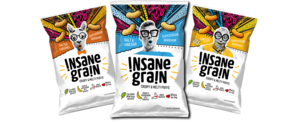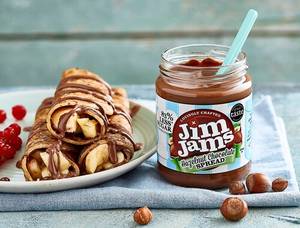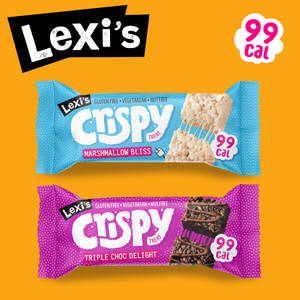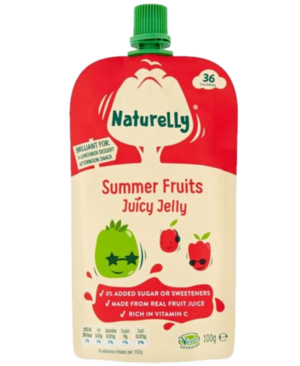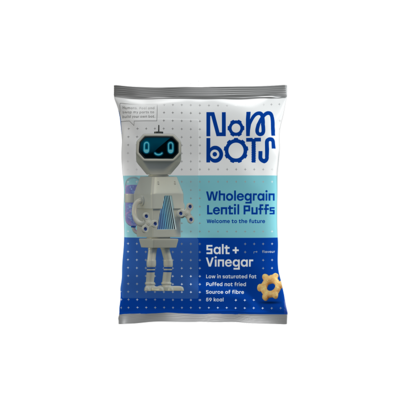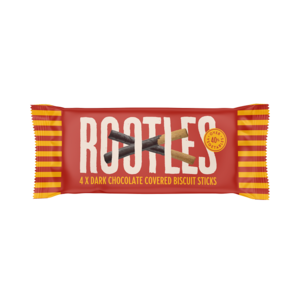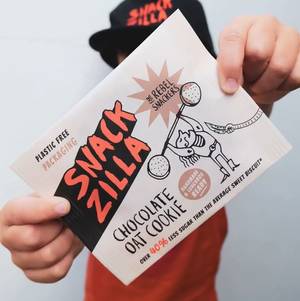The Good Food Fund is a business accelerator and £1.8m venture fund that backs healthier food and drinks brands. It was launched in March this year by the UK food and drink accelerator Mission Ventures, aiming to make more nutritious food and drink accessible to families.
It has since chosen seven healthier snacking brands which it believes have the potential to tackle what’s commonly described as the UK’s childhood obesity epidemic.
The start-ups will get intensive support, including help establishing new manufacturing partners, the reduction of costs and RSP, retailer partnerships and increased distribution. They will receive a place on a free 12-month accelerator programme and enjoy an intensive 12-week business review process that has a focus on consumer branding, cost model and sales strategy.
Alice Hannah, Mission Ventures’ operations executive, said the brands were picked using data to determine how healthy they were compared to others on the market based on calories, fat, salt and sugar content.
“Calories per serving is what we care about primarily, but we don’t want to reduce calories at the expense of a disproportionate increase in saturates, sugar or salt,” she said.
“We compared the brands to other food products within their categories to calculate percentage change in nutritional content, as well as pack size and how filling they are (to avoid children eating multiple packs and negating calorie reduction). The thresholds have been defined using Public Health England’s existing Nutrient Profiling Model, and all products are vetted against this framework.”
She added the brands “have the potential to scale with the right support”.
Snacking sector ripe for disruption
Meanwhile, the snacking sector is ripe for disruption as families demand “a healthier food offer for their children, as long as it meets criteria of affordability, convenience and taste”.
The Good Food Fund also wants to address what it claims is a lack of access to healthy snacking options among lower earning households.
“While children across all income groups eat large amounts of foods which are high in fat, sugar and salt, in the lowest income groups, sweet and savoury snacks contribute a greater proportion of these foods,” said Hannah.
She added that families on lower incomes depend more on convenience store shopping than their wealthier counterparts. This food, however, tends to be unhealthier than that purchased in supermarkets. Further evidence, she said, shows that in comparison to households earning above £20,000, lower-income households purchased relatively more snacks from convenience stores and from ‘other’ store types including bargain and pound stores, while higher-income households spend more on snacks in online shopping.
The 7 brands are:
Insane Grain
Insane Grain’s puffed snacks (94 calories per pack) are made with sorghum, an ancient grain that the brand claims is a ‘nutritional powerhouse’ thanks to its high amounts of vitamins and minerals and gut-health benefits. Co-founder Rushina Shah quit her job at Procter and Gamble to launch the brand. She said: “I had known about this super grain since I was a child (as it is often used in Indian cooking), but didn’t realise how nutritionally powerful it was. I also saw a gap in the market for a healthy snack at a more affordable price point and couldn’t understand why healthy snacks were all priced above £1 and therefore not accessible to all households at different income levels.”
JimJams
JimJams claims its chocolate spreads have 83% less sugar than leading brands by using maltitol, a natural plant-based sweetener derived from corn or wheat, but which can cause a mild laxative or fullness effect in some people with digestive sensitivities. Founders Kevin and Kellie Bath said: “As parents, we were shocked by the amount of sugar contained in chocolate spread. Leading brands contain the equivalent of up to 56 cubes of sugar in one standard jar. We wanted an alternative for our children and so it became our mission to create a chocolate spread that tasted fantastic yet contained a lot less sugar than leading brands.”
Lexi’s Treats
Lexi’s Treats are low-calorie snacks made from puffed rice and marshmallows. Founder Alexei Sharma Khatiwada said: “Made with clean ingredients (no artificial flavours, colours, preservatives or sweeteners) and a recipe that allows more people to enjoy them (affordable, vegetarian, gluten-free, free from 10 allergens and safe for schools, with no nuts and peanuts), they offer consumers a fun, easy and delicious way to make a healthier choice.”
Naturelly
Naturelly’s jelly pots contain less than 33kcals per 100g, with no added sugar or artificial sweeteners. The pots contain 3g of inulin, a dietary fibre made from chicory root, which the brand claims supports immunity, digestive health, bone density weight management and brain health. The founders added: “Being parents ourselves, we only wanted natural ingredients for our little ones. Our juice comes straight from squeezed fruit making Naturelly sweet and healthy by nature with nothing naughty.”
Nombots
Nombots are wholegrain lentil puffs for kids, made with nothing artificial. Naturally low in saturated fat. They’re also a source of fibre and pack 244% more protein than the market leading brand. Along with their cog-shaped crisps and friendly robot characters, they hope to empower children to make better snack choices for themselves. Nombots’ founders Nargis Shaikh and Umar Raza, said: “We felt there was a real need for healthy crisps aimed specifically for children aged 4-9. Our co-founder has several years’ experience as a teacher and we knew the only way to change children’s snacking habits for the better was to create crisp alternatives that would not only be nutritious but most importantly fun. We created crisps that were nutritionally dense, low in saturated fat, a source of fibre and contain 244% more protein than the leading brand.”
Rootles
Rootles are a light and crispy biscuit covered in Belgian chocolate that contains over 40% carrot and sweet potato. Its new veggie biscuit is less than 100 calories per portion and a source of fibre too. CEO of Mission Ventures Paddy Willis said: “Mums long to include more consumption of veggies in their children’s diets and Rootles cleverly combines a finger biscuit that is 40% carrot content enrobed in Belgian chocolate. This is a great innovation that delivers on taste and a great alternative to other finger biscuits on the market.”
Snackzilla
Snackzilla has developed a range of handmade oat cookies that are high in fibre and contain 45% less sugar than most sweet biscuits. Willis said of the brand: “All existing portion pack biscuits for kids on the market are high in fat and sugar. Snackzilla has a playful brand that delivers a less sweet oat-based biscuit on an old family recipe, providing tasty soft to eat biscuits (favoured by young children) and a good source of fibre.”
Brand progress so far
Since joining the programme, the brands have gone on to increase distribution, said Hannah.
Insane Grain, for example, has launched a new share bag pack format. Lexi’s Treats launched officially this summer and sold more than 30,000 units in the first month of trading. JimJams has also unveiled a TV advert for its lower-sugar chocolate spreads.
